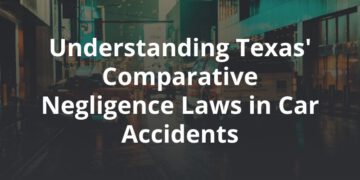The severity of a head injury can vary from barely perceptible to absolutely devastating. If you’ve suffered a head injury in an accident, you might be facing uncertainty about how to heal from your injury — and you likely have questions about what to expect if you decide to seek recovery for it.
While the people living with the effects of a head injury have no question about its impact on their lives, proving it to a jury requires an experienced team that can strategically connect the potentially subtle harms and losses you are experiencing to your injury in a way that maximizes your rightful recovery.
What Factors Are Considered in a Head Injury Lawsuit?
When determining grounds for a personal injury lawsuit, there are some standard considerations. For head injuries, you should ask:
- What are the details of your injury? According to the CDC, 2014 saw nearly 3 million traumatic brain injury (TBI) emergency room visits. For people between the ages of 15 and 44, motor vehicle accidents were the leading cause of TBIs. While a TBI can cause severe and immediate consequences, including fatalities, even a concussion has potentially short- and long-term effects.
- Are your injuries due to someone else’s negligence? In other words, in what ways has someone else contributed to the fact that you were injured? Even if you believe you are partially at fault, the law has specific ways of determining negligence, and any responsible party will be held accountable. This might be a fall from the rafters at a construction site that should have had better safety measures in place, or an injury that could have been mitigated had a faulty seat belt protected a passenger better in a collision.
- What has your injury cost you, financially and otherwise? While every case is different, the law allows for financial recovery when another person or entity’s action results in your injury. Understanding your rights and options as soon as possible is crucial to building a strategy to prove those damages.
Some people worry about filing a lawsuit because they do not want to be seen as greedy or litigious. Because FVF is driven by compassion, education, advocacy, and transparency, if we do not believe you have a valid head injury claim that we can add substantial value to, we will not take your case. We are here to protect the rights of people who have been injured.
What Damages Are Included in Head Injury Lawsuit Compensation?
Personal injury lawsuits in Texas allow those who have been injured to sue for both compensation and punitive damages. Some damages are easy to add up, while others may seem less calculable.
- Property damage. Car accidents and other scenarios might cause damage to your belongings as well as to your person. A personal injury lawsuit may include compensation for the things you lost as well as for the injury you experienced.
- Medical expenses. While you may have exact documentation for the medical expenses you have accrued since your accident, personal injury cases may also recover compensation for future medical expenses. This is especially significant in head injury cases.
- Lost wages. As with medical expenses, the law allows for calculating the impact of your injury on your future earning potential as well as the actual amount wages you have lost since being injured. Unfortunately, the reality of many severe head injuries is that they prevent some people from engaging in the kind of income-producing work they have in the past or might have had the potential for.
- Pain and suffering. Non-economic damages that are still considered compensatory account for the pain and suffering, emotional distress, and loss of enjoyment you have experienced as a result of a physical injury. Proving non-economic harms can be difficult without an experienced attorney, but they are no less important when it comes to the quality of your life.
- Punitive damages. These are damages designed to punish the at-fault person for their grossly negligent behavior, such as an intoxicated crane operator.
Other compensation may also be awarded in a personal injury lawsuit, such as other out-of-pocket expenses incurred as a result of the injury. Speaking with a personal injury lawyer as soon as possible can help you understand the extent of the damages you have experienced and gather documentation to make your case even stronger.
When Should You File a Head Injury Suit?
Head injury claims in Texas have a two-year statute of limitations, which means you have a two-year countdown from your injury day to file your lawsuit. Even if you’re not certain you have a case, spending some time talking to an experienced injury attorney about the details of your case will help you understand the best strategy to protect yourself. We can offer you information on securing the medical treatment you need as well as what to expect from insurance adjusters.
How Do You Find a Head Injury Attorney?
The legal team at FVF has been honored numerous times by the legal community and our clients alike. Our case consultations are always at no cost to you. FVF’s goal for our initial conversation with you is that you feel informed enough to make a decision about whether to proceed with your case — whether you hire us to represent you or not.
FVF accepts cases only when we believe we can add substantial value to your claim, and we work on a contingency fee basis, so you always know what to expect when it comes to our fee for securing your recovery. Contact us today to schedule your free consultation.


